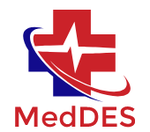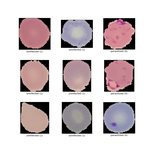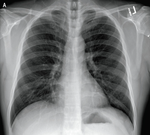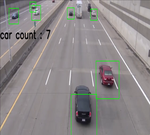Biography
I am Computer Science Master’s Student at Arizona State University.
Broadly speaking, my interests lie in Computer Vision and Deep Learning.
My research interests span across multiple sub-domains:
- I am particularly interested in developing parameter-efficient Deep Learning approaches (with faster edge inference) which spans several sub-topics like Sparse Mixture-of-Experts (MoE) models, Knowledge Distillation, and also evaluating their adversarial robustness.
- I am also interested in exploring multi-modal Vision-Language based approaches which learn better data representations.
- My research has touched upon several application areas including Medical Image Analysis, Document Classification, Adversarial Robustness etc.
Download my resumé.
- Deep Learning
- Computer Vision
- Medical Image Analysis
-
Master of Science in Computer Science, Aug 2022 - May 2024 (Expected)
Arizona State University
-
B.Engg in Electronics & Telecommunication, July 2018 - June 2022
VES Institute of Technology, University of Mumbai
Recent News
[22/12/23] Will be presenting my work titled “Prediction of Headache Improvement Using Multimodal Machine Learning in Patients with Acute Post-Traumatic Headache” at the NIH HEAL Investigator Scientific Meeting 2024 (Feb 7-8) at Bethesda, Maryland!
[17/08/23] Back in Arizona! A new semester kicks off!
[15/06/23] Our abstract titled Interpretable deep learning framework towards understanding molecular changes associated with neuropathology in human brains with Alzheimer’s disease accepted at Alzheimer’s Association International Conference 2023!
[22/05/23] Joining Latent AI as a Machine Learning Intern this summer at Princeton, New Jersey!
[28/04/23] Scored a perfect 4.0 this Spring 2023 semester!
Experience
Joined as a Machine Learning Intern under the ML Team:
- Worked on enabling Intellectual Property Ownership verification using Black-Box Watermarking of DNNs.
- Implemented a fully Black-Box DNN watermarking technique which gives 100% success rate with just 10-30% of the training compute cost (takes less than 10 minutes on a single 12 GB GPU of NVIDIA RTX 3070).
- Developed and integrated the same technique as an end-to-end Black-Box watermarking module with Latent AI’s flagship LEIP SDK toolkit as an add-on feature.
- Conducted empirical experiments across different benchmark datasets and model architectures to prove the robustness of the watermarking method against variety of attacks like FTAL, FTLL, Pruning etc.
- Worked on predicting the improvement in aPTH (migraine) patients using a multi-modal approach combining functional MRI data and brain T2* imaging data using Graph Neural Networks (GNNs).
- Improved the aPTH severity prediction accuracy by a stellar 11.5% by performing feature selection using Boruta ranking algorithm and SHAPley feature importance scores.
- Collaborated with medical experts of Mayo Clinic and visualized the classification performance of our method to them by generating 3D embeddings of the final classification layer using UMAP projection plots.
Research Assistant at Vision Analytics and Pattern Recognition(VAPR) Lab:
- Worked on developing lightweight Deep Neural Networks (DNNs) with a focus on Multi-scale feature learning for COVID-19 Detection from Chest CT Scans. Proposed and published three models at top conferences and journals.
- Developed MFL-Net: an efficient lightweight DNN (0.78M Params) with Multiscale Feature Learning (MFL) modules capturing and preserving features at different depths with a blend of convolutions and residual skip connections.
- MFL-Net (30x lighter than ResNet-50 and 9x lighter than DenseNet-121) achieved an accuracy of 98.79% and 93.59% on SARS-CoV-2 CT-Scan dataset and COVID-CT dataset respectively.
- Worked on understanding why Convolutional Neural Networks (CNNs) fail to generalize on images with varying intensities of adversarial perturbations like Gaussian Noise, Background Occlusion and Affine Transformations.
- Performed experiments on the benchmark ILSVRC Dataset using pretrained Imagenet models like AlexNet, VGG-16, EfficientNet using Pytorch. Visualized saliency maps using GradCAMs to highlight the model’s attention region in the image, giving insights behind the wrong prediction.
- Analyzed the dip in classification performance with the increasing intensity of different perturbations for all the ImageNet models using Matplotlib and Python.
- Worked on COVID-19 Lung Lesion Segmentation on the official NIH COVID-19 Grand Challenge Data. Analyzed the segmentation performance of U-Net and its variants like R2UNet, Attention UNet etc.
- Experimented modifying these networks by adding residual blocks and atrous convolution blocks in their architectures.
- Added attention mechanism in UNet coupled with Tversky Loss function for enhancing feature learning capability which gave the best segmentation IoU of 93.47%.
- Worked on developing a bike recommendation system for public bike sharing systems around the globe. Analyzed millions of trip records from the official Divvy Bike trip data.
- Grouped bikes with similar trip patterns like trip distance and trip duration using K-means clustering into three categories: highly used, moderately used and rarely used bikes.
- Trained a Random Forest Classifier to predict the best cluster of bikes depending on the user’s desired trip duration and trip distance. The model achieved an accuracy of 97%.



